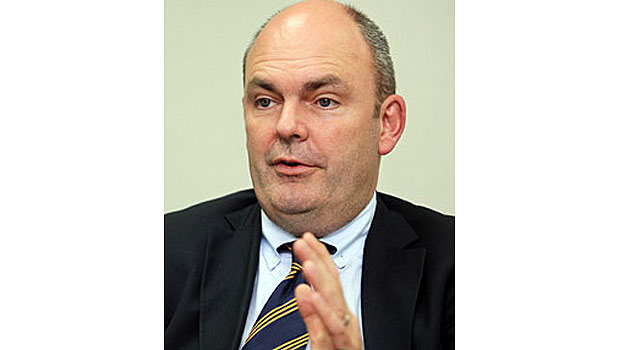He hopes to raise New Zealand's profile as a major destination for Saudi students.
The four-day international education fair, organized by the Kingdom's Ministry of Higher Education, will be inaugurated in the capital on April 17. "New Zealand will be a major participant at the higher education event," said a spokesman of the New Zealand Embassy in Riyadh yesterday.
Joyce will deliver the closing address at this largest education fair of the region, which is a key event for New Zealand institutes to promote themselves in Saudi Arabia. New Zealand will be represented at the exhibition by several universities, institutes of technology and polytechnics as well as English language schools.
A number of education consultancy businesses along with officials from Education New Zealand, Immigration New Zealand, Trade and Enterprise will also be participating in the education event. The spokesman said New Zealand will be represented by major universities and technology institutes besides several departments including government agencies. "These institutions, which have rich education and training contents best-suited for a country like Saudi Arabia, will showcase their potentials," he added.
The Riyadh education fair has assumed more significance after the Saudi government decided to increase its allocations for higher education and workforce training, accounting for over 26 percent of its 2012 budget. In its ongoing efforts toward promoting education and training as well as achieving economic progress, the Kingdom has allocated billions of dollars for completing the construction of state of-the-art academic institutions throughout the country.
The spokesman said Joyce would visit Oman, Qatar and Saudi Arabia during this trip. He is currently in Oman, where he is scheduled to sign an agreement in the education sector. The New Zealand minister will stay in the Kingdom for four days primarily with an aim to boost bilateral cooperation in the higher education sector. The minister will also lend support to New Zealand's education companies seeking to grow their business in the region.
“Since 2008, students from the Gulf States studying in New Zealand have grown by 33.4 percent. This makes the Gulf states our fifth largest source of international students,” said Joyce in his departure statement from Wellington. “Education consultancy companies of New Zealand have successfully undertaken works and are continuing to bid for significant contracts in a number of countries in the region, especially in the education sector,” he added.
New Zealand has a growing international reputation of delivering high quality education, said Joyce, adding the international education industry remains in good shape to double its economic contribution to New Zealand to $5 billion by 2025. The Gulf states and the Middle East are an important part of that future growth, added Joyce, saying the Kingdom is now the fifth largest source of international students, worth an estimated $250 million each year.
Many New Zealand education providers also have long-established links with Saudi Arabia for the delivery of education services in the Kingdom. He also stressed the need for more collaboration in terms of joint research projects, joint academic programs as well as student and faculty exchanges particularly in science, technology and medical fields. He said New Zealand is a popular destination for international students as the country is recognized for its safe environment and quality education system.
About 100,000 international students from 150 countries are currently on the rolls of academic institutions in New Zealand now. The country offers qualifications that are recognized all over the world. Bachelor’s degrees from New Zealand tertiary education providers are comparable overall to those from Britain, Australia and the US.
New Zealand bachelor’s degrees are recognized for enrolment in postgraduate programs at universities throughout the world.
New Zealand is also a member of the Lisbon Qualification Recognition Convention. This means New Zealand qualifications are more easily recognized in each of the 50 Lisbon Convention countries. The Lisbon Convention is recognized as setting international best practice for assessing and comparing qualifications from around the world. Along with New Zealand, signatories to the Lisbon Convention include the United Kingdom, France, Germany, Italy, US, Canada and Australia.










